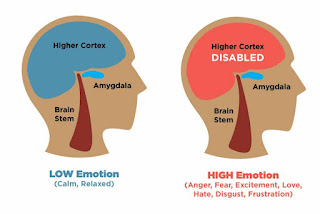How does Parentese Relate to Word Recognition?
Parentese refers to language that the children receive when they were very young. Their parents or caregivers' languages become a crucial foundation for children later language development. The language of the parents, which include the sound, spelling, meaning of words, as well as the grammatical rules of the language, shape the children's ability in recognizing and even distinguishing languages, whether it is their mother tongue or something else for instance.
How does that take place? The extensive contact between parents, especially a mother, has been a numerous language inputs for the children. It can be proven by the fact that the language acquisition starts from the pregnancy. When a mother talks to a child in the womb, it indicates that the children start absorbing the sound pattern of their mother. We can see the children's responses towards their mother's talks or physical contact stimulus. The recognition process is continuously taking place when they were born. According to children language development stages, they grow with language that their mother speaks. One of the logical consequences of the language contact between mother and children, the children can then acknowledge the way their mom speak. They were used to listen to rhymes of their mom's speech. Therefore, this is not a surprising fact that the children can easily identify the sounds of their mom even though their mom is speaking at a separated room, physically invisible. Indeed, they can recognize that the sound or speech heard belongs to their mom, not someone else.
The language input the children receive when they were young becomes a milestone to why the children are later able to differ among languages. They who were raised in Madurese, their brain functioning to language processing is full of Madurese. In the same way, it is also applicable for those who were raised in Javanese. Regardless the language inputs received, English, Arabic, Chinese, or Bahasa Indonesia, this would be the linguistic features instilled in their brain.
The children's familiarity to their mom's sound or speech can be further clearly explained in the way how they can differ between the different sounds of motorcycles. It is generally acknowledged that different brands of motorcycles have their own characteristics. Honda and Suzuki for instance are different in sound, even the different type of motorcycles produced in the same company. Both Revo and Supra are produced by Honda company. However, they do have distinguished sound. Bravo and Beat are also produced by Suzuki, but they have their own sound. We then can identify which product we or other people are riding are from their sound.
Once they were growing and become more fluent speakers, children are able to identify the sound, words, sentences they heard or read belong to their language or other languages. In other words, they have a natural capacity to distinguish whether the language heard or read is theirs or not. Interestingly, the children can even guess smartly of the missing syllables of words coming from their mother tongue. For example, children can still guess what words they are even when they are incompletely uttered or pronounced. If you raised in Javanese, this is much easier for you to recognize that language compared to children who were raised in Arabic language settings. Simultaneously, Australian children can recognize English, even when they are incompletely uttered, as English is instilled in their brain. Their audio cortex is used to the English sounds, or Javanese sound. They even recognize their own language even though the speakers stayed in a different room or you just listen to people talking.
How does the parentese relate to accent? Accent is the way people coming from a particular area, country, or social group pronounce words. Rhymes of the language instilled in the children brain become the accent of its speaker. In addition, the speech properties function to language repertoire. It means that when we used English language, our accent, as the speech properties support it, will be English, cockney, for instance. If you were Madurese, or Javanese, or Chinese, whatever the language we speak, our accent is working accordingly.
Can accent be shifted?


Comments
Post a Comment